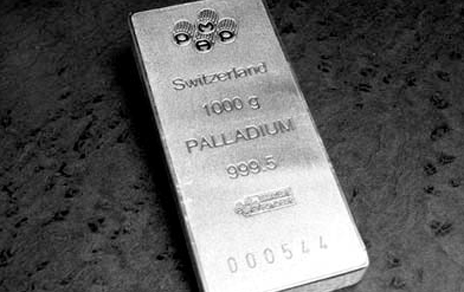Spot palladium prices in London hit a one-month high and briefly broke above the key level of $1,000 per troy ounce in volatile trade on Friday as some investors covered their short positions and the market was tight for nearby physical supply.
Spot palladium was up 2.6% at $947 per troy ounce by 1655 GMT after hitting $1,027, its highest since May 22. Prices had touched their lowest in four months of $867.51 on Tuesday.
The indicators of the short-term liquidity tightness were visible in thin market, known as an exchange of futures for physicals (EFP), where parties exchange a futures contract for the physical product.
“With the combination of money managers holding record short position in palladium futures, severe backwardation in the EFP market over the last days and sizable ETF allocation over the last month that results in withdrawal of the metal from the market, we are setting up for the possibility of an old fashioned short squeeze,” Jeff Klein, a trader at Heraeus, told Reuters.
The availability of palladium bars was especially tight in London, two industry sources said.
South Africa, Russia and North America are the top producers of palladium, however the Russian bars made after early 2022 are off the London market after they lost their “good delivery” status with the start of Moscow’s full-scale invasion of Ukraine.
Palladium, mainly used in the autocatalysts curbing harmful emissions, saw a 39% slump in 2023 due to bets that rising market share of palladium-free electric vehicles (EVs) would reduce demand in future.
The metals is, however, supported by this year’s brighter sales estimates for hybrid cars, which need palladium, and continuing structural deficit in the market itself.
“Given the significant deficit, above-ground stocks have declined to their lowest levels in our records (dating back to 1980) this year, with further deficits expected in 2024 and 2025” said Wilma Swarts, head of platinum group metals research at consultancy Metals Focus.
“This will further tighten liquidity and is likely to lift or support prices this year,” she added.
(By Polina Devitt, Pratima Desai and Arpan Varghese; Editing by Josie Kao)
